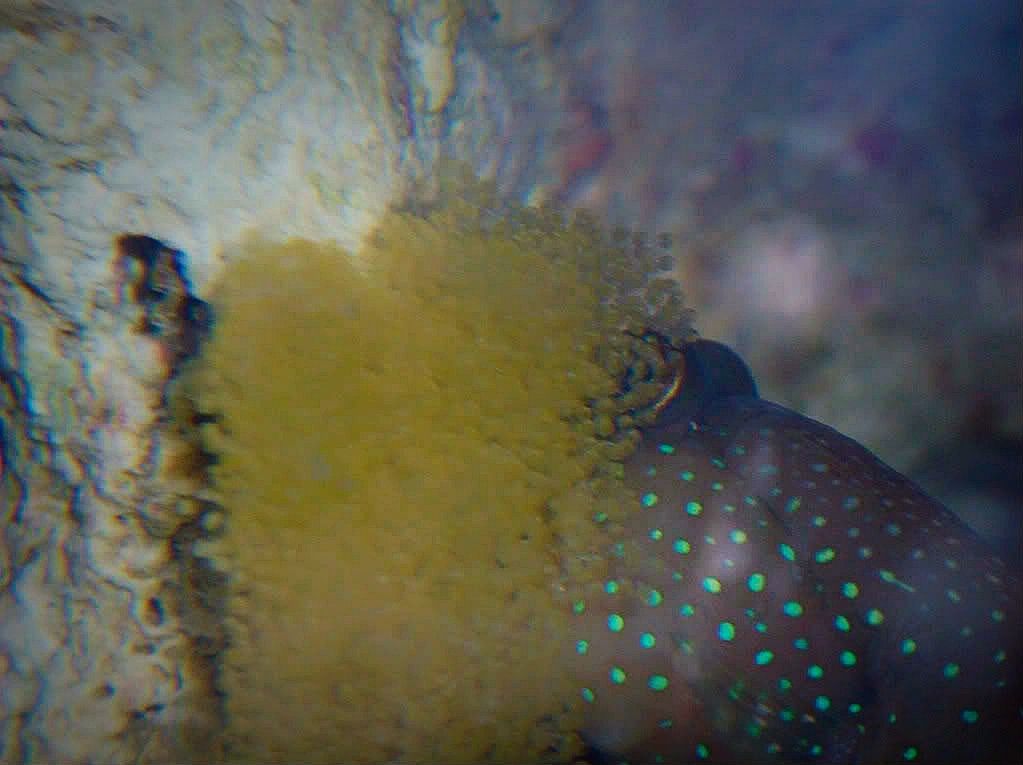I would have to disagree. I kept a CBB that was eating very well, right out of my hands in fact but he just kept losing weight until he died six months later. I did everything I could to no avail so no it wasn't my fault. The damage done to the internal organs by cyanide can take months to manifest itself and there nothing you can do to correct it.
I would imagine it is possable to have a fish die six months later from cyanide poison but it is rare. They usually don't make it a month or two.
But it is still our fault. If the fish wasen't collected, it would probably still be alive. Of course they we wouldn't have this hobby so that is not the answer.
One thing I would like to mention though, a fish that is eating is not always a healthy fish. My fish would eat cardboard if I soaked it in clam juice but it would not keep them alive for long. Copperbands will eat a variety of foods including mysis, brine shrimp, clams and most other meaty foods but it is not their natural diet. A copperband in the South Pacific where they come from will almost never get a chance to eat a clam, mysis or brine shrimp. They were designed to eat worms. Now I am not saying yours died because of a lack of the proper food as I don't know what you were feeding it and as I said, it could have been collected with cyanide. But we as aquarists many times feel that as long as the fish is eating commonly available aquarium foods, we are doing good. That is not the case with many fish, copperbands, moorish Idols, clingfish, mandarins, orange spotted filefish, clown groupers and anything in the seahorse family all need special foods although many of them will eat other things these other things may not keep them alive for ten years or more. Many aquarium fish have lifespans of twenty years or more (eccept seahorses)
If you follow a copperband butterfly in the sea, you will see them picking worms out of small holes, it makes up the majority of their diet as I have watched them do this. I have found that worms are the best thing to feed fish and copperbands in particular. I feed my fish live worms almost every day and many of them are spawning every month or so.
I have found that while mysis is considered a great food, it is mostly undijestable shell which is fine for most, but not all fish.
IMO many foods available to the aquarium trade are available because they are easily collected and easy to process and package. The best foods for most fish is "whole" baby salt water fish. This is makes up the majority of a fishes diet in the sea.
The sea is litterly teaming with baby fish. Especially around a coral reef. If you do much diving, not as a tourist but when you can really spend some time to observe, you will be able to see all these tiny fry. The larger fish swimming above occasionally dip down for a snack. The baby fish they are eating are of course whole fish. Many fish are almost a quarter oil which is stored in their livers. The rest of the fish is composed of calcium in the bones and every other vitamin and mineral that fish need. The barest, least nutritious part of the fish is the part we eat and what we usually feed our fish. It is the mussel. Almost all of the nutrition is in the guts. Thats why whole fish is the best thing we could feed our fish. Unfortunately this food is unavailable to almost everyone. Yes we could take a sardine and put it in a blender but if you have ever done this it is quite messy and most of the juices which holds the vitamins and oils leaks out when we try to feed our fish with it.
I would like to see tiny frozen whole fish for sale or at least bite sized chopped whole fish in some sort of jel binder that keeps the juices in.
I sometimes find freeze dried tiny fish in Asian markets but they take hours to re constitute and have the consistancy of saw dust. I would really love to find these fish frozen but so far I have not found them.
If some enterprising fish food manufacturer would do this I think it would be a boon to this hobby. Those tiny fish are also cheap, cheaper than mysis and healthier for our fish to eat.
In the summer I collect these tiny fish to fed to my tank, they are very plentiful and I feed them live. I have never froze them but have been thinking about it for years.
Most of my fish are smaller gobies and live mainly of newborn brine.
Newborn brine shrimp are also very healthy because of the yoke sack which contains a lot of oil. Unfortunately the shrimp are too small for many fish and full grown brine shrimp are not a very good staple food for anything.
These eggs were laid last week in my tank and hatched a few days ago. The thousand or so fry contributed much needed nutrients to my fish.


